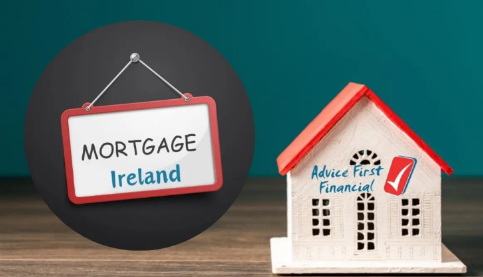Are you dreaming of owning a home in Ireland but feeling overwhelmed by the thought of securing a mortgage? You’re not alone! Navigating the housing market and understanding what it takes to finance your dream home can be daunting.
In this blog post, we’ll break down everything you need to know about how much money you need for a mortgage in Ireland. From current market trends to practical tips for saving, we’ve got you covered.
Let’s dive in and make your homeownership dreams a reality!
Current Housing Market in Ireland
The housing market in Ireland is dynamic and ever-changing, influenced by factors like supply and demand, economic conditions, and government policies. In recent years, there has been a steady increase in property prices across the country, making it more challenging for first-time buyers to enter the market. Urban areas like Dublin have experienced particularly high price growth, while rural regions may offer more affordable options.
Renting remains a popular choice for many Irish residents due to the flexibility it provides. However, with rents also on the rise, some individuals are exploring homeownership as a way to secure their financial future. The availability of mortgage products tailored to different needs and preferences has made buying a home a viable option for those ready to take that step.
Staying informed about local market trends and seeking guidance from experts can help potential homebuyers make informed decisions in this competitive landscape.
Understanding Mortgages in Ireland
Navigating the world of mortgages in Ireland can be a daunting task, but with the right knowledge, you can make informed decisions. Mortgages are long-term loans specifically designed for purchasing property.
In Ireland, there are various types of mortgages available to suit different needs and financial situations. These include fixed-rate mortgages, variable rate mortgages, and interest-only mortgages. Each type has its own set of pros and cons that you should consider before making a choice.
When applying for a mortgage in Ireland, lenders will assess your financial situation to determine how much they are willing to lend you. Factors such as your income, credit history, employment status, and existing debts all play a role in this assessment.
It’s important to shop around for the best mortgage deal that fits your requirements while also considering future financial goals. Working with reputable mortgage advisors can help simplify the process and ensure you make well-informed decisions regarding your home loan.
Factors that Affect Mortgage Amounts
When it comes to determining how much money you need for a mortgage in Ireland, there are several key factors that can significantly impact the amount you will be approved for.
- Your income plays a crucial role in this process as lenders typically look at your earnings to assess your ability to repay the loan.
- Your credit history is another critical factor that lenders consider when deciding on the mortgage amount. A strong credit score can increase your chances of securing a larger loan with favorable terms, while a poor credit history may limit your borrowing capacity.
- The property value and type also influence the mortgage amount. More expensive properties will naturally require larger loans, while factors like location and condition of the property can affect lending decisions.
- Additionally, the size of your down payment can impact the total mortgage amount. The more money you put down upfront, the less you will need to borrow, potentially reducing your monthly payments and overall interest costs over time.
Calculating Your Budget for a Mortgage
When it comes to calculating your budget for a mortgage in Ireland, there are several factors you need to consider.
- Start by evaluating your current financial situation – take into account your income, expenses, and any existing debts. This will give you a clear picture of how much you can afford to pay each month towards your mortgage.
- Next, factor in additional costs such as property taxes, insurance, and maintenance fees. These expenses can add up quickly so make sure to include them in your budget calculations.
- Consider the length of the loan term and interest rates when determining how much you can comfortably borrow.
- It’s important to be realistic about what you can afford – don’t stretch yourself too thin just to buy a more expensive property. Remember that unexpected expenses can arise so having some buffer room in your budget is advisable.
By carefully assessing your finances and setting a realistic budget, you’ll be better prepared to navigate the home buying process smoothly.
Tips for Saving Money for a Down Payment
Saving money for a down payment on a home can seem like a daunting task, but with some strategic planning and discipline, it is achievable.
- One tip is to create a budget and track your expenses diligently. This will help you identify areas where you can cut back and save more towards your goal.
- Consider setting up automatic transfers to a separate savings account specifically for your down payment fund. By automating the process, you ensure that a portion of your income goes directly into savings without temptation to spend it elsewhere.
- Look for ways to increase your income, whether through taking on extra work or selling items you no longer need. Every little bit helps when working towards a significant financial goal like buying a home.
- Explore government programs or incentives that may assist first-time homebuyers in saving for their down payment. Researching all available options can potentially provide valuable resources to help make homeownership more accessible.
Conclusion
Purchasing a home in Ireland is a significant financial decision that requires careful planning and consideration. By understanding the current housing market, how mortgages work in Ireland, and the factors that influence mortgage amounts, you can better prepare yourself for homeownership.
Calculating your budget for a mortgage is crucial to ensure you can comfortably afford your monthly payments. Save money for a down payment by following our tips on cutting expenses and increasing your savings.
If traditional mortgages aren’t feasible for you, explore alternative options such as government schemes or speaking with mortgage advisors to find the best solution for your situation. With proper research and guidance from experts like Money Maximising Advisors, you can make informed decisions about financing your new home.
Finding the right mortgage advisor who offers quality services tailored to your needs will greatly impact your home buying journey. Trusting professionals like Money Maximising Advisors Limited will help simplify the process and provide valuable insights into securing the best possible deal on a mortgage in Ireland.
Talk to us at +353 91 393 125
Mail us at office@mmadvisors.ie
Visit our office at Unit 3, Office 6, Liosban Business Park, Tuam Rd, Galway, Ireland
Related Terms- What Are The Responsibilities Of A Mortgage Broker?




